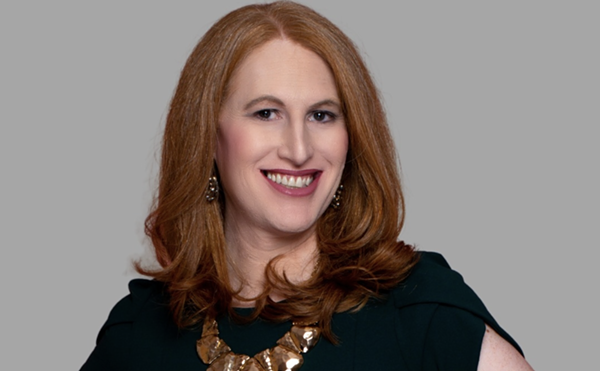Ever since Vicente Martinez Ybor launched the cigar industry in Tampa in 1886, the area's fortunes have been inextricably bound up with Cuba's.
Now, with an estimated 100,000 Cuban-Americans living in West Central Florida — close to 67,000 of them in Tampa Bay, according to 2009 statistics — we would seem well-placed to take advantage of those close ties. The economic embargo against the Communist-led island nation, in place since 1961, was loosened slightly by Congress in 2000, allowing for the sales of some food and agricultural products to private individuals and non-government organizations. Since then, numerous cities and states across the U.S. have done billions of dollars of trade with Cuba.
But not Tampa Bay. Despite the fact that Tampa is just 332 miles directly north of Havana, making it the U.S. port with the straightest path to and from the island, only a few companies in the Bay area have traded with the country. A small band of critics has successfully cowed local officials into not engaging with Cuba, saying that such actions only boost the repressive Castro government.
That's beginning to change. When a Sky King Flight took off from Tampa International Airport in early September for Havana, it was the first commercial plane to take that route in half a century, thanks to an Obama administration decision allowing more U.S. airports to begin offering direct flights to Cuba. By the end of this month, TIA will be offering four such weekly flights, three to the Cuban capital and one to the city of Holguin, on the island's eastern side.
The Greater Tampa Chamber of Commerce, which for years has discussed the possibility of establishing some sort of trade with Cuba, appears more serious than ever, with officials from the business group saying they intend to visit there before the end of this year.
World Trade Center Tampa Bay, a branch of the NYC-based global trade organization, has already made inroads. They've sent a coalition of officials to the island twice over the past two years, says board member Stephen Michelini, and it looks "very promising" for Tampa Bay agricultural businesses to obtain contracts to sell food to Cuba in 2012.
Overtures to Cuba made by two prominent area Democrats — Tampa Congresswoman Kathy Castor and Tampa City Councilmember Mary Mulhern — have raised great hopes. But their efforts have also been greeted with marked skepticism.
The Cuba/Tampa relationship may be entering a new day, but the path to rapprochement won't be easy.
Kathy Castor has announced that she will be making a trip to Cuba, possibly by the end of next month. Patrick Manteiga, the editor and publisher of La Gaceta, is a supporter of liberalizing trade with Cuba, but he fears Castor's trip will be a duplication of her predecessor's only visit to Havana in 2003. Manteiga says that was a "sham trip" because Jim Davis met with political prisoners there — the equivalent in Manteiga's view of a foreign government trying to open relations with the Obama administration by driving down to Ashley Avenue to talk to Occupy Tampa protesters.
Upon hearing such criticism, Davis, who represented Tampa in Congress from 1996-2006, simply laughs, and says he would agree if that's what happened — but says that in addition to meeting with dissidents, he met with some of the government's highest-ranking officials, including Ricardo Alarcon, the president of Cuba's National Assembly.
In September, Tampa City Council Chair Mary Mulhern spent a short few days in Cuba, a trip she made to celebrate the new flights but also to take advantage of "the inevitable expansion" of such business with Cuba.
City Councilman Mike Suarez objected to Mulhern's letter on the Council's behalf to Alarcon, in which she discussed potential business opportunities for the city and country in the future. Suarez said he didn't think it was appropriate to have communications with a foreign government that the U.S. government does not recognize. He was the only Council member to express such a sentiment.
Much harsher was a recent letter sent to Mulhern (and distributed to every media outlet in town) by Ralph Fernandez, for years the go-to-guy for Tampa media when reporting on any type of Cuban issue.
Fernandez, an attorney and virulent Fidel Castro critic, blasted Mulhern as "the self-appointed minister of foreign relations," and questioned the Chamber's new focus on establishing trade with Cuba, saying "this senselessness of Cuba has gone too far."
Mulhern says if his letter was intended to intimidate her, it didn't.
"This email is insulting, inaccurate, outdated, illogical, and poorly written," she told CL, adding she received 78 positive emails from her constituents after her trip.
There is no doubt that tension still exists between the exile community and those in Tampa who want to establish a more positive relationship with Cuba, hoping that when the embargo does end, the city will be prepared for trade.
A poll conducted by Hamilton Campaigns last March said that 60 percent of Hillsborough County voters favor lifting the embargo with Cuba, with 32 percent opposing. In that same study, 49 percent said they were more likely to vote for a candidate who supports ending the embargo vs. 32 percent who were less likely.
But that's in Tampa Bay. Despite the number of Cuban-Americans here, our region has never been the dominant Florida voice of the exile community. That would be in Miami. So opinions must be different there, right?
Not quite. A Florida International University poll taken in December of 2008 of Miami-Dade County Cuban Americans found 55 percent in favor of discontinuing the embargo. An FIU survey taken last month was more ambiguous, with a majority this time supporting the embargo, but 57 percent also in support of establishing diplomatic relations with Cuba. The same survey also showed a whopping 80 percent saying that the embargo has "not worked very well" or "not worked at all."
But that carries little weight with some of the state's biggest politicians, such as Senator Marco Rubio. When questioned by CL about Tampa's attitude, he responded by saying that he had spent the previous Saturday on the phone with two different members of the resistance in Cuba.
"They're brutally repressed," he said, days after he became immersed in controversy over whether his own parents were exiles, as he had long claimed. "How does the Cuban government pay for the agents, the political policemen that repress dissidents and the resistance on the island? ... [A] lot of it from the money they get from U.S. travelers. From people who travel to Cuba, they pay exorbitant fees on these flights. And that money is used to fund a repressive regime." (CL contacted the three airlines flying into Havana from TIA for a response to Rubio's claim; one refused to even consider the question, and the other two did not respond by press time.)
Rubio's fellow Miami Republican, Congressman David Rivera, sponsored a state law in 2006 that bars Florida public schools and universities from using state money to travel to Cuba and other countries considered "sponsors of terrorism." USF is among those joining the ACLU in fighting the law, which has made it nearly impossible for USF's Graphicstudio to continue working with Cuban artists. The U.S. Supreme Court may consider the case.
Republicans in Congress are hardly unified with Rubio on the issue of Cuban trade. Another ascendant GOP star, Wisconsin Congressman Paul Ryan, said in 2008, "If we're going to have free trade with China, why not Cuba?"
That's what Al Fox says. The 68-year-old Tampa native and former Washington D.C. lobbyist has been a tireless advocate for eliminating the U.S. embargo since 1998, when he formed the Alliance for Responsible Cuba Policy. He says the embargo has nothing to do with human rights violations, and everything to do with "vengeance and pride and retribution."
A prideful man who doesn't forget a perceived slight or insult, Fox has taken many metaphorical arrows from the likes of Ralph Fernandez and other Castro critics. But after 79 trips to Cuba (including being the sherpa for many CEOs, governors, members of Congress and even former Tampa Mayor Dick Greco), he now suspects he may have become less threatening to the powers that be in Tampa, citing invitations this year to address both the Tampa Tiger Bay Club and a League of Women Voters luncheon.
"I was the devil incarnate," he laughs, saying that if somebody like himself with no political clout can "move the football," somebody like Kathy Castor could have a significant impact on relations between the two countries. But he's concerned about the briefings she might be receiving in advance of her trip.
"How did Bob Buckhorn, Rose Ferlita, Ed Turanchik, Dick Greco get their views on Cuba?" he asks. He answers his own question by mentioning Fernandez, as well as Simon Canasi and Elio Mueller, other Tampa residents known for their tough opposition to establishing relations with Cuba.
Canasi, who left Cuba with his parents at age 5 when Fidel Castro took over, isn't a complete hawk on the issue; he would like the travel ban completely lifted. But other than that, he's adamant about not reestablishing relations. He rejects the argument that Tampa needs to establish a business connection with the Cuban government so that when the embargo is lifted the city won't be too far behind.
"Once you get change within Cuba, I think all bets are going to be off anyway, and they're not going to look at who did business with Castro and who didn't."
One noticeable statistic regarding Cuba's business with the U.S. is that agricultural exports to Cuba sank by 31 percent last year, and have dropped by 48 percent since hitting a peak of $710 million in 2008.
The U.S.-Cuba Trade and Economic Council say Cuba's inability to generate more political support in the U.S. has discouraged it from buying American. Al Fox believes part of that reduced trade reflects the Cuban government's belief that Barack Obama won't lift the sanctions. But he also thinks that Congresswoman Castor's visit could be significant in terms of changing the mindset of those who maintain the status quo of the embargo.
Last week the Raul Castro-led Cuban government announced a new property law that promises to allow citizens and permanent residents to buy and sell real estate. Coupled with other moves, it led the Florida League of Women Voters (who have sent a delegation to Cuba three times in the last year) to say, "This is a unique window of opportunity."
Advocates say the U.S. embargo will die soon. For many observers in Tampa, the time for the city to take advantage of those changes is now.














